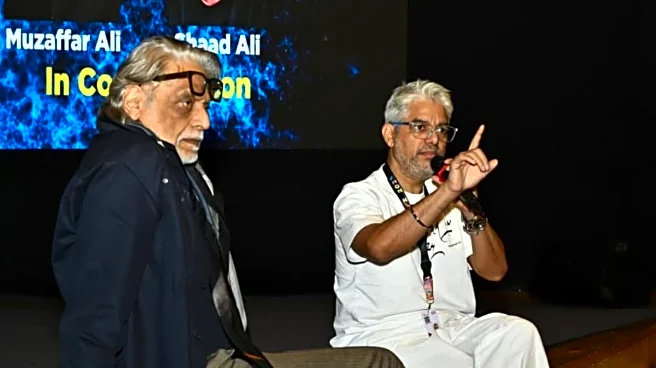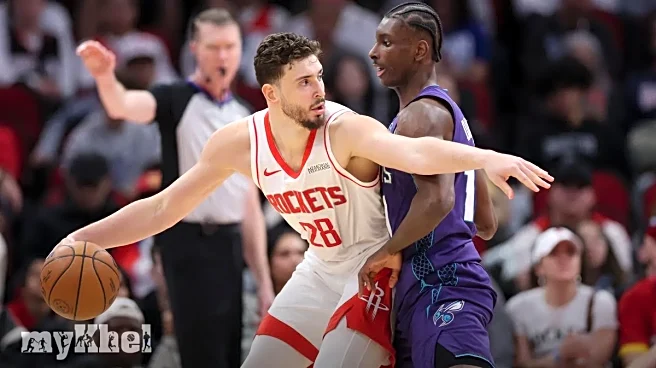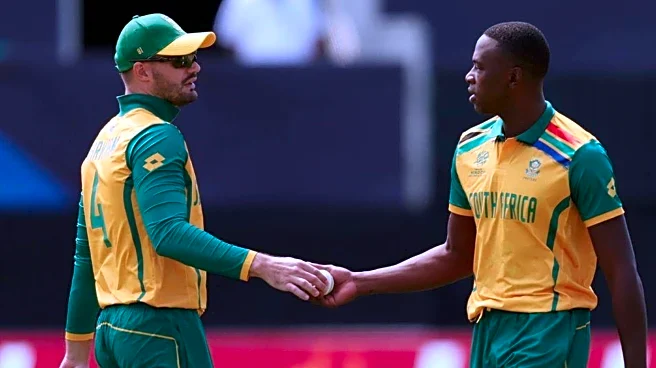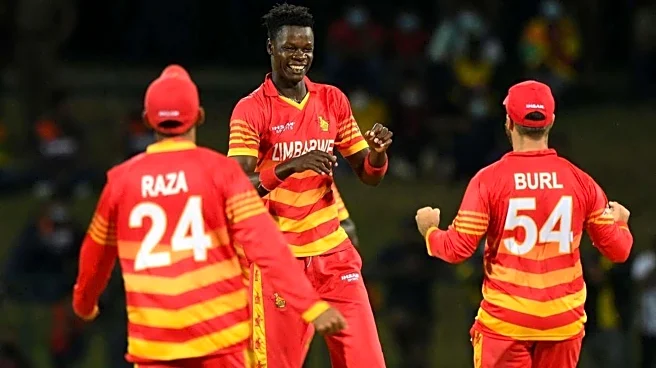At the 56th International Film Festival of India, where global cinema flickered across screens and conversations curled into the humid Goan air, an unexpectedly intimate moment unfolded. It was a moment where cinema was not
simply discussed, but inherited. When Muzaffar Ali and his son Shaad Ali took the stage, the auditorium seemed to soften. What followed was not a panel, nor a formal interview, but a rare cross generational homage to memory, imagination, and a film that has refused to die: Zooni.
The session, aptly titled “Cinema and Culture: Reflections from Two Eras,” became a cinematic bridge anchored by an unfinished dream from Kashmir that continues to travel across decades.
Zooni: The Dream That Wouldn’t Let Go
For the audience, the emotional centre of the conversation emerged when the father and son duo turned to Zooni. Muzaffar Ali’s voice grew gentler, almost reverent, as he spoke of the film that has lived in fragments: scenes shot, music composed, memories etched, yet never completed.
“Zooni was a dream beyond many dreams,” he said, describing the heartbreak and beauty of a film halted by the unpredictable rhythms of Kashmir. Weather, terrain, political shifts, everything conspired against its making. And yet, nothing could erase its soul.
🎬Cinema & Culture: Reflections from Two Eras
Muzaffar Ali and Shaad Ali discuss the evolution of Indian filmmaking from classic, culturally rooted storytelling to contemporary, commercially driven narratives shaped by new social contexts.
It explores how shifting social and… pic.twitter.com/bY2fb0yS95
— PIB in Goa 🇮🇳 (@PIB_Panaji) November 21, 2025
To Muzaffar Ali, Kashmir is not a backdrop for cinema; it is a consciousness. “Films for Kashmir must be born in Kashmir,” he insisted, urging filmmakers to create from within the culture rather than parachuting narratives into it.
It was here that Shaad stepped in, not as a filmmaker, but as a son. He revealed the quiet project he has taken upon himself: restoring the negatives and soundtracks of Zooni, reassembling what time attempted to scatter.
A short film, Zooni: Lost and Found, screened during the session, became a poignant revelation. It showed Shaad retracing the contours of his father’s abandoned epic, searching for what remained and what could still be reborn.
The Origins of a Filmmaker
Before Zooni, before Umrao Jaan, even before Gaman, there was a boy sketching on paper, winning art competitions, collecting poems in notebooks. Cinema came later.
“Filmmaking is about what your chemistry, botany, geology is,” Muzaffar Ali said, as if creativity were a mineral that grows in the body.
Shaad, playing both interviewer and son, guided him through these memories with a tenderness that felt almost private. He asked what his father once dreamed of becoming.
Not a filmmaker, it turned out. An artist. A painter. A boy enamoured by colour.
Calcutta, the city that taught him the elasticity of imagination, became his informal film school. There, he found a world where cinema could be free of clichés, renewed by literature, poetry, music, and the unpredictable.
Gaman, Displacement, and the First Silver Peacock
When the conversation reached Gaman, the auditorium held its breath. Muzaffar Ali described the image that refused to leave him: streams of men leaving home, carrying with them despair and possibility in equal measure. Migration was not a plot, it was a wound.
Though Gaman went on to win the Silver Peacock at IFFI, he said the award never felt like empowerment. Instead, it reminded him that every achievement births a new battle. “Success,” he implied, “does not quiet the hunger. It sharpens it.”
On Music, Poetry, and the Soul of Umrao Jaan
Shaad noted the distinctive staging and lyricism in his father’s films. For Muzaffar Ali, music is not seasoning; it is a philosophical extension of the story.
Umrao Jaan’s immortal melodies, he said, were born from surrender.
“Poetry makes you dream, and the poet must dream with us,” he explained.
It was a reminder that some films are not made, they are summoned.
A Son Listening, A Father Remembering
There were moments so personal that the session felt like an open diary. When Shaad described restoring Zooni, the room sensed the weight of inheritance: what it means to receive an unfinished dream and hold it with care.
Cinema here was not a career. It was lineage.
Kashmir and the Films Yet to Be Made
In the Q&A, someone asked whether Indian cinema might one day return to telling truthfully rooted Kashmiri stories.
Muzaffar Ali’s response was firm, almost prophetic:
“Kashmir has everything. You don’t need to import talent. You need to grow it there.”
The audience applauded, but the moment felt deeper than applause. It was a call to responsibility.
A Legacy in Motion
As the session closed, the auditorium realised it had witnessed something rare: a father who carved poetry into film, and a son who continues to shape that legacy in his own rhythm.
This was not nostalgia.
This was continuity.
At IFFI 2025, amid premieres, markets, and red carpets, it was this quiet conversation that lingered, a reminder that cinema is more than reels and rushes. It is memory, inheritance, and the faith that even an unfinished film like Zooni can find new life in the hands of another generation.








/images/ppid_a911dc6a-image-177057660419574367.webp)

/images/ppid_a911dc6a-image-177057656462481724.webp)


